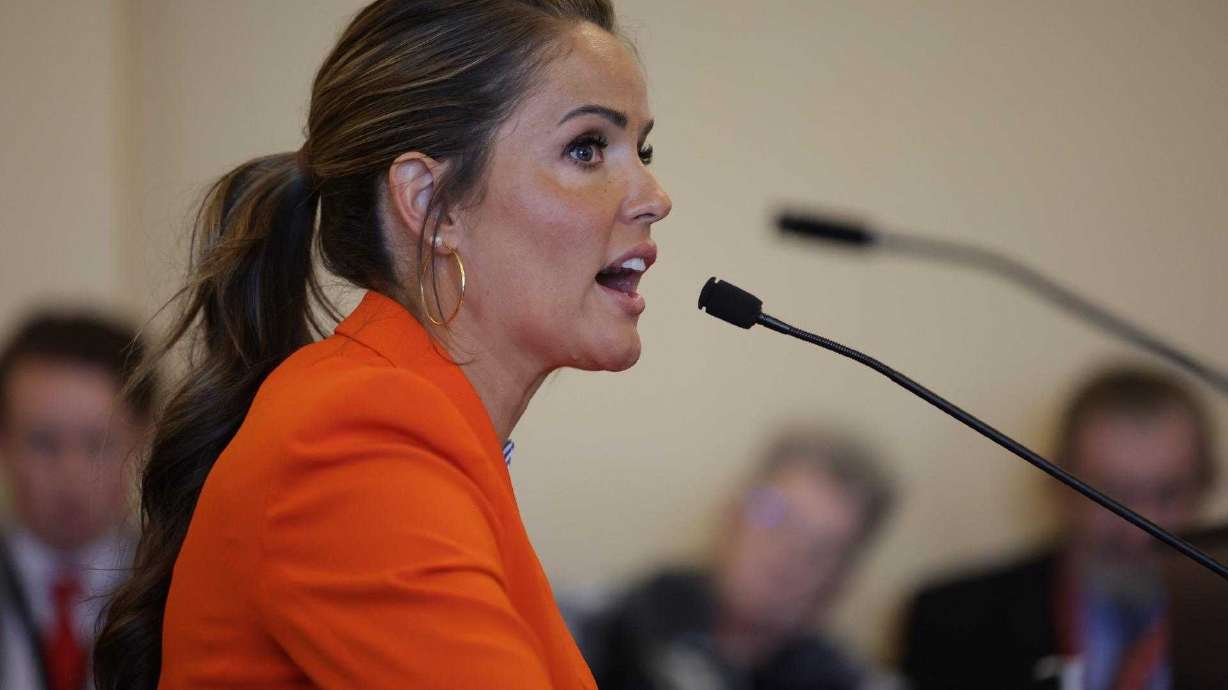
SALT LAKE CITY — State lawmakers are diving into some of the most controversial issues early in the legislative session, as a House committee approved a transgender bathroom bill on the second day.
Rep. Kera Birkeland, R-Morgan, has described HB257 as an effort to increase privacy in restrooms and locker rooms in government buildings — including schools, prisons, and municipal buildings — by barring transgender individuals from using a gender-specific facility unless they have legally changed their gender on their birth certificate and undergone transgender-related surgery.
The bill also requires more unisex or single-stall facilities in all publicly-funded buildings and narrowly defines both “male” and “female” in code.
Many opponents of the bill say it doesn’t meaningfully protect women or children and that it stigmatizes an already vulnerable population; in effect blaming transgender individuals for inappropriate behavior perpetrated by cisgender people — individuals whose gender identity matches the sex they were assigned at birth.
Birkeland said she has heard from constituents who have felt threatened or violated by people who claim to be transgender, but said the bill is not aimed at keeping transgender people out of bathrooms. When pressed by Rep. Brian King, D-Salt Lake City, for examples of inappropriate behavior “that is tied to any trans issues or individuals,” Birkeland said, “Unfortunately, today, I can’t provide a police report or anything like that.”
The House Business and Labor Committee advanced the bill following a lengthy hearing on Tuesday afternoon, during which many opponents and LGBTQ advocates decried the effort as discriminatory.
During the more than hourlong discussion, several people expressed concerns that the bill could hurt domestic violence shelters — many of which receive federal and state funding — and other similar service providers, by limiting the services they could provide to transgender individuals and threatening federal funding by running afoul of anti-discrimination laws.
Birkeland has said the bill would not impact federal funding, but several representatives of domestic violence shelters asked for further discussion to consider the concerns. Gary Scheller, with the Utah Office of Victims of Crime, said his office has been unable to verify that “this won’t have negative implications” for shelters and other providers.
Transgender issues have become a flashpoint in the Utah Legislature in recent years, after the Republican supermajority has passed bills to prohibit transgender girls from competing in high school sports and ban transgender-related surgeries for minors.
Equality Utah, an LGBTQ organization, has been working with Birkeland behind the scenes on the bill, but the group said Tuesday it still has “significant concerns” with the policy.
“Bathroom bills reinforce rhetoric around the transgender community that is not factually based, and draw false conclusions about behavior in bathrooms and changing rooms,” the organization said in a statement Tuesday. “In fact, these bills, HB257 included, invite discrimination against all Utahns by setting up a framework in law that allows the public to assess femininity and masculinity.”
Many people who testified against the bill shared this concern, saying it puts all individuals at risk of having to show a birth certificate and possibly prove whether they’ve had genital surgery if they don’t look feminine or masculine enough for the restroom they use.
Birkeland said her bill wouldn’t create a “genital check” for someone using a bathroom.
“That is not something that is going to happen, nor should it happen,” she said, adding that in order for a complaint against a person to be valid, that person “would have to go into a restroom for an inappropriate, improper purpose, and do something that a reasonable person would consider alarmist.”
She also said she believes the vast majority of transgender individuals already use unisex or single-stall bathrooms when available, “which is why creating a greater accommodation seemed like the correct answer.” Birkeland acknowledged that it’s not a perfect solution, but said it’s “the right step forward.”
Although he didn’t specifically endorse Birkeland’s bill, Gov. Spencer Cox told KSL.com last week that he is supportive of protecting “women’s spaces” and seemed open to the idea of improving access to unisex and single-stall facilities.
The bill now heads to the House for consideration.



